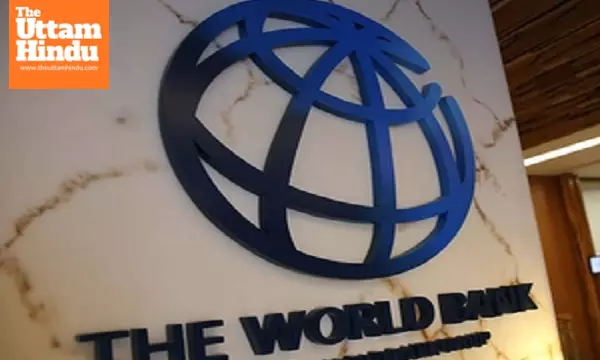Mining, domestic demand bolster Mongolia's economy: World Bank

Ulan Bator (The Uttam Hindu): Mongolia's economy is projected to grow by 5.3 per cent in 2024 and 6.5 per cent in 2025, driven by robust mining production and domestic demand, according to the World Bank's latest semi-annual Mongolia Economic Update on Friday. Economic growth in Mongolia remained steady at 5.7 per cent year-on-year during the first half of 2024, with high-frequency data indicating continued momentum into the third quarter, Xinhua news agency reported.
The World Bank attributed this solid performance largely to a sustained surge in mining and transportation services, despite a contraction in the agriculture sector caused by harsh climate conditions. Domestic demand was also a key driver of growth but has exerted pressure on the balance of payments as imports outpace revenues from commodity exports, the report noted. The medium-term growth outlook for Mongolia remains positive, with an expected average growth rate of 6.0 per cent over 2026-2027.
Growth is anticipated to shift increasingly toward sectors, including trade, services, and agriculture. Public consumption and investments under the government's four-year action plan are also expected to contribute to accelerated economic expansion. However, this outlook is subject to several downside risks, the bank warned. Greater-than-expected fiscal spending could exacerbate inflationary pressures and widen both fiscal and current account deficits. Climate change poses significant economic threats, heightening the risk of more frequent and severe natural disasters, particularly for poor and vulnerable households.
Additionally, slower-than-expected global growth could weaken external demand and reduce prices for key export commodities, while escalating geopolitical tensions could drive up fuel costs, further increasing inflation and production expenses, according to the World Bank. "While Mongolia's ongoing mineral export boom is delivering positive macro-fiscal outcomes for the second consecutive year, maintaining these gains will require prudent macroeconomic management," said Taehyun Lee, World Bank Country Manager for Mongolia. "The continued reliance on mining leaves Mongolia vulnerable to external shocks and structural reforms to diversify the economy and increase its resilience remain important."
In addition to analysing recent economic developments, the World Bank's report provides insights into the distributional effects of Mongolia's fiscal system, with a focus on the impact of taxes and social spending on poverty and inequality. The findings reveal that while Mongolia's fiscal policies are effective in reducing poverty and income inequality, the reliance on broad-based programs makes them costly. The report recommends prioritising reforms to increase the progressivity of the personal income tax system and reallocating resources toward more cost-effective poverty-targeting programs..



